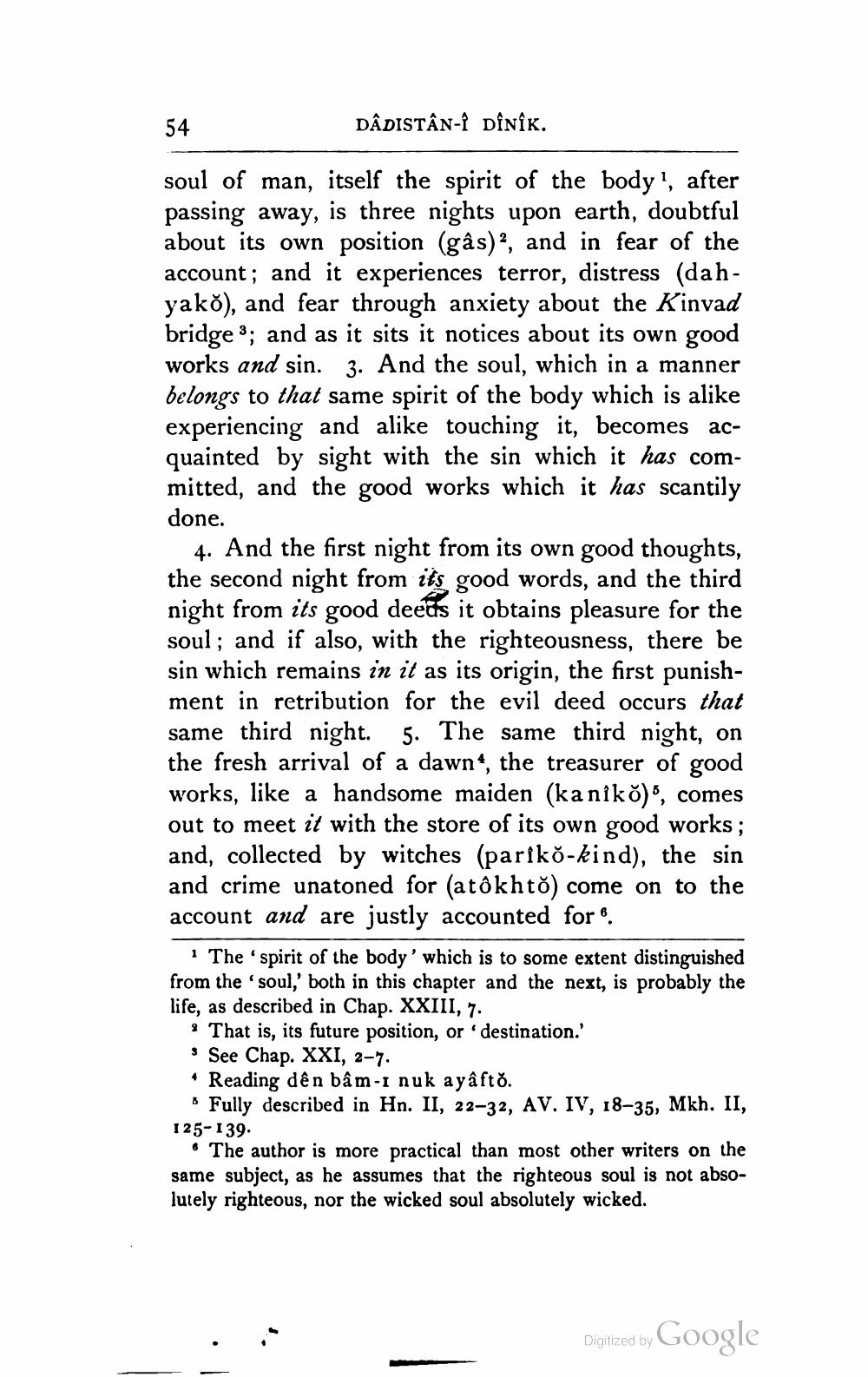________________
54
DÂDISTÂN-Î DÎNÎK.
soul of man, itself the spirit of the body', after passing away, is three nights upon earth, doubtful about its own position (gâs)?, and in fear of the account; and it experiences terror, distress (dahyako), and fear through anxiety about the Kinvad bridge 3; and as it sits it notices about its own good works and sin. 3. And the soul, which in a manner belongs to that same spirit of the body which is alike experiencing and alike touching it, becomes acquainted by sight with the sin which it has committed, and the good works which it has scantily done.
4. And the first night from its own good thoughts, the second night from its good words, and the third night from its good deeds it obtains pleasure for the soul; and if also, with the righteousness, there be sin which remains in it as its origin, the first punishment in retribution for the evil deed occurs that same third night. 5. The same third night, on the fresh arrival of a dawn*, the treasurer of good works, like a handsome maiden (ka niko)", comes out to meet it with the store of its own good works; and, collected by witches (pariko-kind), the sin and crime unatoned for (atô khto) come on to the account and are justly accounted for .
1 The spirit of the body' which is to some extent distinguished from the soul,' both in this chapter and the next, is probably the life, as described in Chap. XXIII, 7. 9 That is, its future position, or destination.'
See Chap. XXI, 2-7. • Reading dên bâm-I nuk a yâfto. * Fully described in Hn. II, 22–32, AV. IV, 18-35, Mkh. II, 125-139.
& The author is more practical than most other writers on the same subject, as he assumes that the righteous soul is not absolutely righteous, nor the wicked soul absolutely wicked.
Digitized by Google




